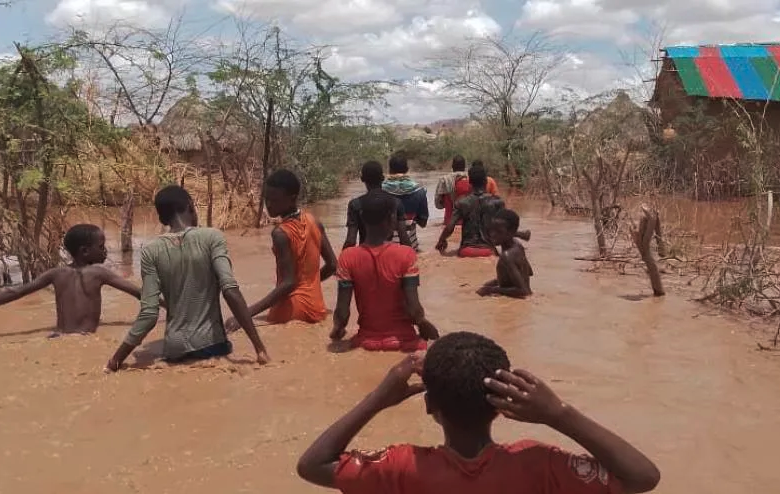The Africa Centre for Disaster Management (ACDM) reports a severe climate crisis in Ethiopia and Somalia, where extreme rains and flash flooding have devastated rural communities. These communities are already grappling with the aftermath of nearly three years of drought, causing what could be East Africa’s most significant hunger crisis in decades, which disproportionately affects children.
Over the past three weeks, flash floods have resulted in the loss of at least 50 lives, displaced more than 30,000 families, and annihilated at least 10,000 livestock and 21,000 hectares of crops across both countries. This underscores the vulnerability of the Horn of Africa to climate emergencies and the intertwining of climate impacts and the hunger crisis.
The prolonged drought has negatively affected the soil quality, rendering it less capable of absorbing rains to support crop growth. Consequently, communities are unable to find respite from food and water scarcity. This crisis has led to an alarming 25 million people facing hunger in Somalia and Ethiopia, including over 2.5 million malnourished children. Global hunger is at its peak this century, with an estimated 345 million people projected to experience food insecurity this year – more than double the 2020 figure, according to the UN.
Children under five are particularly at risk of acute malnutrition that can cause death, stunting, and long-term mental and physical developmental issues due to insufficient nutrition and illness.
Malama Mwila, Save the Children’s Regional Spokesperson for East and Southern Africa, said, “The situation is tragic. Children and families in these regions of Somalia and Ethiopia have long awaited rains, but instead of providing relief, the rains have destroyed the remaining crops and livestock.”
This crisis underscores the need for sustained international funding to tackle the hunger crisis and investment in long-term resilience for climate-vulnerable communities. It’s also crucial to progress on the COP27 agreement to establish a loss and damage fund, earmarked for climate disasters such as these droughts and flash floods, and for longer-term development post-recovery.
Last year, the United Nations warned of an impending famine in Somalia, experiencing its worst drought in around four decades due to multiple failed rainy seasons, escalating food prices, and ongoing conflict. This has stirred fears of a situation similar to 2011, when approximately 260,000 people lost their lives.

